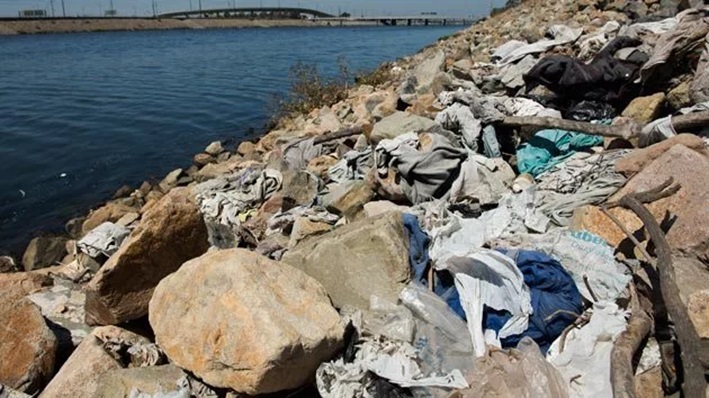Over the years, plastic pollution has been increasing and this just puts more harm to the environment. To make matters worse, plastic can not biodegrade and this means plastic can last forever. Additionally, toxic chemicals leak out and affect human health by entering the body and exposing them to cancer, birth defects, and other ailments. However, not only does plastic affect humans, it also affects animals. If animals get entangled with plastic, they can mistake it for food and eat it or even get stuck in them. Therefore, it is time to ditch the plastic and help make our environment a better place.

[Source: Associated Press, Josh Morgan]
Getting rid of straws are another way to help out. In 2018, California banned the use of plastic straws in restaurants and has made an effort to get people to consume less plastic. Americans toss 500 million straws every day, so getting rid of straws will be a step in the right direction. People should also feel encouraged to skip plastic water bottles and invest in a refillable water bottle. Nearly a million plastic bottles are sold every minute around the world and it is time to stop using plastic water bottles everyday.
If these ways to help out are a stretch, people can start off small by buying bar soap instead of liquid soap, avoid products packaged in plastic, or even by recycling. Recycling rates are very low and recycling will reduce the use of natural resources. But, most importantly, everyone can help out by not littering. This does not take any sacrifice nor is it hard. People just have to throw away their trash in their trash cans, not on the streets. Based on Ocean Conservancy, 73 percent of beach litter is plastic and this goes back to animal endangerment. Plastic can get swept up into oceans and cause danger to sea animals.

[Source: Associated Press, Ted S. Warren]
Caitie Nigrelli, an environmental social scientist at Illinois Indiana Sea Grant said, “Research shows that knowledge isn’t the only thing that will change behavior. You usually need much more. The benefits have to be tangible and the behavior needs to be feasible and within their abilities.”
Trent Hodges, a plastic pollution manager for the Surfrider Foundation stated, “The consumer often times has little choice to refuse plastic. And because it’s so ubiquitous and such a common item, it becomes a force of habit. We go to the grocery store, buy some produce, put it in a plastic bag, walk out.”
No matter what the reason for using plastic is, people should really start cutting down their use of plastic because it truly does make a difference to the environment.
Sharon Pak, Grade 11
Crescenta Valley High School

